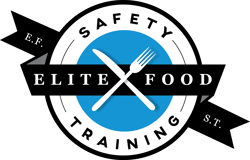Discover the importance of food safety and test your knowledge with a convenient online tool.
Understanding Food Safety Basics
Understanding food safety basics is essential to ensure the safety and well-being of consumers. It involves implementing proper hygiene practices, maintaining cleanliness in food handling and preparation areas, and preventing the contamination of food with harmful bacteria or substances. By understanding the fundamental principles of food safety, individuals can minimize the risk of foodborne illnesses and protect the health of themselves and others.
Some key points to remember about understanding food safety basics include:
- Proper handwashing techniques
- Safe food storage and temperature control
- Cross-contamination prevention
- Importance of personal hygiene
- Recognizing and addressing common food safety hazards
By mastering these basics, individuals can create a safe and healthy environment for food preparation and consumption.
Exploring the Importance of Food Safety
Food safety is of utmost importance in any setting where food is handled or prepared. The consequences of poor food safety practices can be severe, leading to foodborne illnesses, outbreaks, and even loss of life. By exploring the importance of food safety, individuals can gain a deeper understanding of why it is crucial to prioritize safe food practices.
Some key points to consider when exploring the importance of food safety include:
- Protecting public health
- Preventing foodborne illnesses
- Maintaining consumer trust
- Complying with legal regulations and standards
- Avoiding financial losses for businesses
By recognizing the significance of food safety, individuals can take the necessary steps to ensure the safety and well-being of themselves and others.
Taking the Food Safety Test Online
Taking a food safety test online is an excellent way to assess your knowledge and understanding of food safety principles. These tests typically cover various topics related to food safety, including proper food handling techniques, sanitation practices, and hazard identification. By taking the test, individuals can evaluate their current level of knowledge and identify areas for improvement.
Some key points to know about taking the food safety test online include:
- Accessible and convenient
- Provides immediate feedback on performance
- Helps in identifying knowledge gaps
- Can be used for certification or compliance purposes
- Enables continuous learning and skill enhancement
By taking the food safety test online, individuals can actively engage in self-assessment and further enhance their understanding of food safety principles.
Click on this link to start: https://www.proprofs.com/quiz-school/quizshow.php?title=2017-40-question-practice-quiz&q=1
Interpreting Your Results
Once you have completed the food safety test, it is essential to interpret your results accurately. Interpreting your results can provide valuable insights into your knowledge and areas that require improvement. By understanding your performance, you can take appropriate steps to enhance your food safety knowledge and skills.
Some key points to consider when interpreting your results include:
- Reviewing the correct answers and explanations for incorrect responses
- Identifying areas of strength and weakness
- Setting specific goals for improvement
- Seeking additional training or educational resources
- Practicing and applying learned concepts in real-life scenarios
By effectively interpreting your results, you can create a personalized learning plan and work towards becoming a more knowledgeable and skilled individual in food safety.
Next Steps for Improving Food Safety Knowledge
Improving food safety knowledge requires ongoing commitment and continuous learning. After taking the food safety test and interpreting the results, it is crucial to take the next steps towards enhancing your knowledge and skills in this area.
Some key points to consider for improving food safety knowledge include:
- Securing a seat in an upcoming EFST certification course
- Participating in food safety training programs
- Attending workshops or seminars on food safety
- Keeping up-to-date with the latest food safety regulations
- Seeking certifications or advanced qualifications in food safety with EFST
- Applying learned concepts in practical settings
By actively pursuing opportunities for learning and improvement, individuals can become more proficient in food safety practices and contribute to a safer and healthier food environment.


.png)
-2.png)
-2.png)
.jpg)
